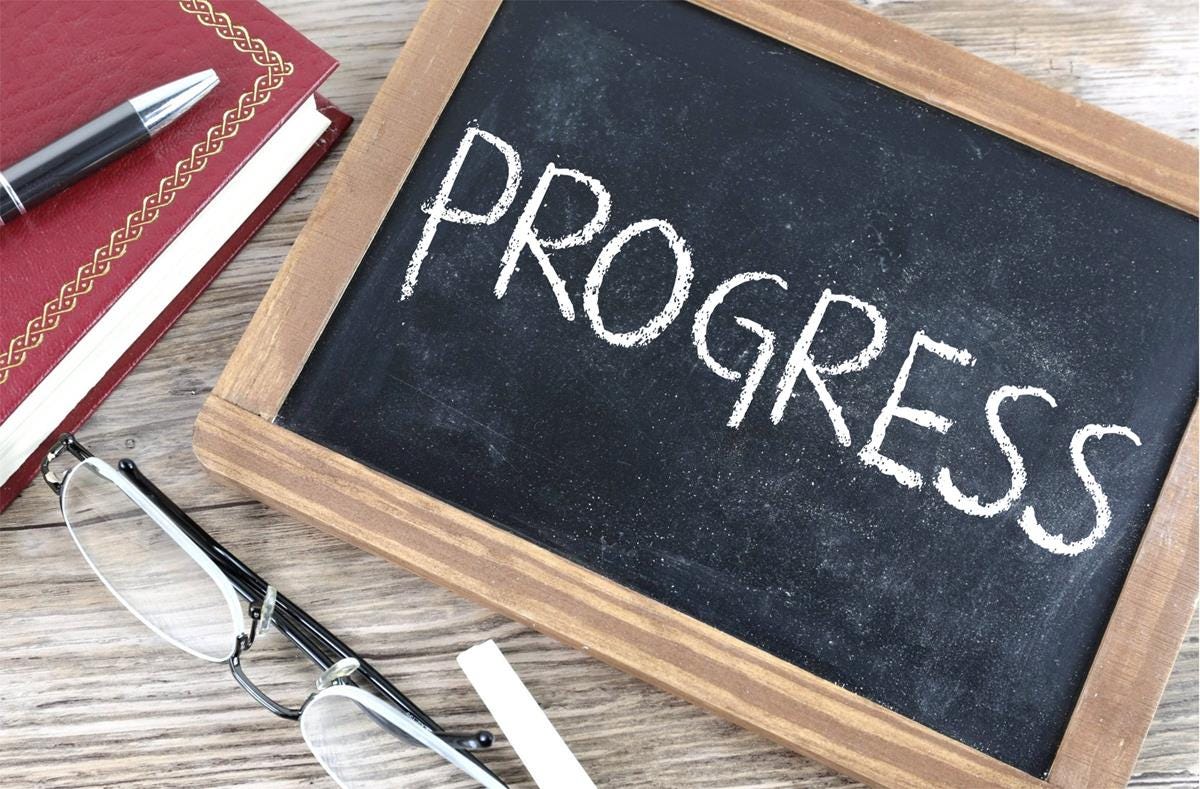If you stop focusing on wedge issues, you'll see some political progress is being made
Controversies are exploited to motivate partisans, yet we wonder why few of them are ever resolved.

If you watched the news early this year, you’d be forgiven for having a dim view of the future of democracy. Long negotiations on the Build Back Better bill stalled. The Republican National Committee branded 2021’s violent insurrection “legitimate political discourse.” Freedom House recorded a 16th year of global decline in democracy. The U.S. appeared unable to make any policy while many states set about creating actively bad policy. Internationally, the U.S. and its democratic allies were failing to respond to the rise of China and other authoritarian states.
While this dark view of things is good for clicks and great for campaigning, it reflects a warped perspective of the reality of our democracy and of democracies generally. When the press focuses on conflict, bipartisan legislation rarely gets much billing, regardless of how good it is. Negative campaigns that focus on wedge issues get voters to the polls and donors to open their wallets. They also gloss over common ground and real accomplishments while presenting each issue apocalyptically.
Believe it or not, even our “gridlocked” Congress has been quietly turning out important, bipartisan legislation. So has our statehouse, despite its apparent determination to attract national media coverage to every terrible, dead-end campaign promise.
Poppycock, you say! Surely we would have heard about that! But, really, it’s true. Congress has, for example, reauthorized the lapsed Violence Against Women Act, prohibited forced arbitration for sexual harassment, reformed the Post Office, and passed a trillion-dollar investment in America’s infrastructure. Meanwhile, the Iowa Legislature passed laws cracking down on elder abuse, lowering the cost of prescriptions, addressing Iowa’s teacher shortage, and more.
These accomplishments are generally on the boring side of politics. Some would even argue that they pass because they are boring. That they are boring doesn’t make them unimportant, and the fact that they get so little attention skews the public’s understanding of how well democracy works.
This understanding is further twisted by the microscope that is applied to hot-button issues. Politicians and talking heads use the same rhetoric about immigration when border crossings are at a record high (2021) as they do when it’s the lowest in decades (2015, 2017). Even relatively routine Supreme Court nominations are media bonanzas. And let’s not even mention critical race theory. Controversies are exploited to motivate partisans, yet we wonder why few of them are ever resolved.
All of this is not to say that our current system does not have real problems that need to be addressed with deadly earnestness. Our lackluster attempts to address climate change are not cutting it. Legislation that allows states to overturn elections is a very real threat to democracy, as is our last President, who conducted a long, coordinated effort at an auto-coup after losing a legitimate election. Matters like these deserve our attention because of their serious ramifications. If we spent less time worked up over wedge issues–particularly manufactured ones–we might even give it to them.
Instead, we should look abroad for perspective and motivation. Russia’s state-run media shows what censorship really looks like and the importance of independent press. The Chinese Uighur genocide shows the absurdity of so-called “white-genocide.” The Russian invasion of Ukraine shows us how dangerous an autocratic country can be, how quickly determined democracies can change, and how strong democracies can be when their people unite in purpose. As President Zelensky said to Congress, “Just like anyone else in the United States, I remember your national memorial in Rushmore, the faces of your prominent presidents, those who laid the foundation of the United States of America as it is today: democracy, independence, freedom, and care for everyone, for every person, for everyone who works diligently, who lives honestly, who respects the law. We in Ukraine want the same for our people, all that is normal part of your own life.” Let’s not forget what we have.
Kelcey Patrick-Ferree and Shannon Patrick live in Iowa.
A version of this piece was published in the Iowa City Press-Citizen on April 8, 2022.

